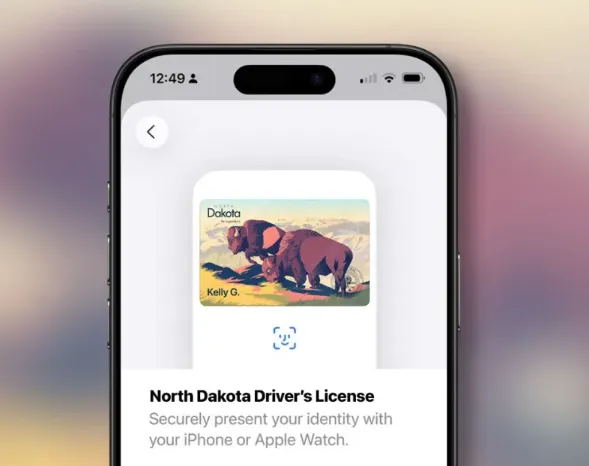Apple is taking another step toward a fully digital future as North Dakota prepares to join its growing list of states supporting driver’s licenses in Apple Wallet. Soon, residents will have the option to store their state-issued ID directly on their iPhone, making it easier to verify their identity in certain situations without reaching for a physical card.
A Gradual Expansion Across the U.S.
When Apple first revealed its digital ID initiative in 2021, the idea of replacing a traditional wallet with a smartphone sounded futuristic. Progress, however, has been steady but slow. Only 11 states and Puerto Rico have launched support so far, including California, Arizona, Georgia, and Maryland. North Dakota will be the latest addition, signaling broader acceptance of the technology nationwide.
What It Will Cost and Where It Works
According to updated information from Apple, residents in North Dakota will need to pay a small $5 fee to add their driver’s license to the Wallet app. While the convenience is appealing, the digital version still has limitations. In most states, it is currently accepted only at Transportation Security Administration (TSA) checkpoints. That means for activities like purchasing alcohol, entering certain venues, or interacting with law enforcement during a traffic stop, individuals will still need their physical ID for now.
How to Set It Up
Once the feature launches, adding a digital license is straightforward. iPhone users can simply open the Wallet app, tap the “+” symbol, and follow the on-screen instructions. Apple’s security infrastructure, including biometric authentication through Face ID or Touch ID, ensures that sensitive personal information remains protected.
Looking Ahead
North Dakota’s inclusion reflects Apple’s ongoing commitment to expanding its digital identification ecosystem. While the dream of leaving a traditional wallet at home isn’t quite a reality yet, each new state brings Apple closer to making digital IDs a widely accepted norm across the country. As adoption grows and regulations evolve, the convenience and security of carrying identification on your phone may soon become part of everyday life.
